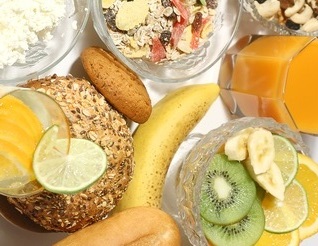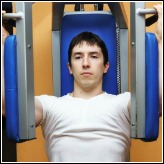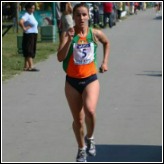Endurance Sports Nutrition - A Commonsense Approach
Having an understanding of the strategies related to endurance sports nutrition will be key to your success as an endurance athlete. Correct fuelling is important to all sports people, but as every one knows, endurance events can seriously deplete your fuel and fluid stores. In fact the more intense and the longer the activity, the more your stores will be depleted.
An endurance athlete who starts their training or competition knowing that they have taken care of their food and drink needs in the days and hours leading up to the event, is far more likely to have an edge over athletes who have not.

In an effort not to bore you with too many details, I have tried to take a common sense approach to sports nutrition for endurance athletes. These are just some of the main considerations you will need to think about. Some of the ideas will relate to training while others will refer specifically to race day strategies.
Carbohydrates
Before embarking on any exercise program, you should take on enough carbohydrates to satisfy the energy requirements of that activity. Equally, after your training or competition, a good endurance sports nutrition plan should ensure that you pay back any energy you have expended.
It is also important that endurance athletes increase their carbohydrate intake in the 2-3 days prior to a competition. This will enhance their performance. To help increase carbohydrate intake during this time, you should supplement your diet by considering foods such as energy bars, gels and liquid meals, this is in addition to your normal food intake.
For very long events such as marathons and ultra distance races (events which last for more than an hour), you should aim for an intake of 30-60g of rapidly absorbed carbohydrates during the event. This type of intake is best achieved by feedings every 10-30 minutes (event permitting). This strategy will help to provide a steady flow of glucose into the blood steam.
Hydration
Performance during training or competition will suffer if you are not sufficiently hydrated prior to the start of exercise let alone during the event itself. Having a good endurance sports nutrition strategy will help you to plan for this. Sports drinks as well as water should be drunk to contribute to your total fluid intake.
As a general rule, if the exercise period last longer than an hour you should aim to replace fluids during the exercise. An isotonic drink should be your preferred choice for fluid replacement during exercise as it ensures that not only fluids are replaced but also carbohydrates. Some athletes prefer fruit juice or some other sugary type drink, but you need to be careful as these do not contain sodium.
When to Fuel
A good endurance sports nutrition strategy will take into account that when you eat is as important as what to eat. For example you will benefit more from your carbohydrate intake if you eat as soon as possible after exercise. You will also need to begin drinking as soon as possible to replace lost fluids and electrolytes from sweating.
Refueling is an important part of your recovery process. The sooner you can begin the recovery process, the better shape you will be in for the next session or competition. The timing of your refueling becomes very critical if you are an athlete who trains more than once a day and have only a few hours between one session and the next. So plan ahead and have things prepared beforehand.
What to Fuel With
The types of foods you would fuel with are quite different immediately before and after exercise when compared to what you would eat at other times of the day. For example, pre-competition/pre-training and immediate post training/post competition foods should be low fibre foods. High fiber foods break down in the gut more slowly, and so will delay the restoration of glycogen in the body. They are also more bulky and may cause stomach upsets in some athletes.
For this reason it is recommended that you should refuel with high glycaemic index foods such as:
- Breakfast cereals such as cornflakes and weetabix;
- Some breads, bagels and rice cakes;
- Tropical fruits such as watermelons and ripe bananas;
- Baked or mashed potatoes;
- Pretzels and plain popcorn;
- Sports drinks.
Finally, plan and practice your endurance sports nutrition strategies up to and in and around your event – don’t ever experiment with a new approach during an important competition.
Sign Up For The Latest Track And Field News And Improve Your Athletic Performance!
From "Endurance Sports Nutrition - A Commonsense Approach" To " Faster, Stronger, Better – Your Shortcut To Improved Athletic Performance"
More information about a good sports nutrition diet in the Sports Nutrition Guide







